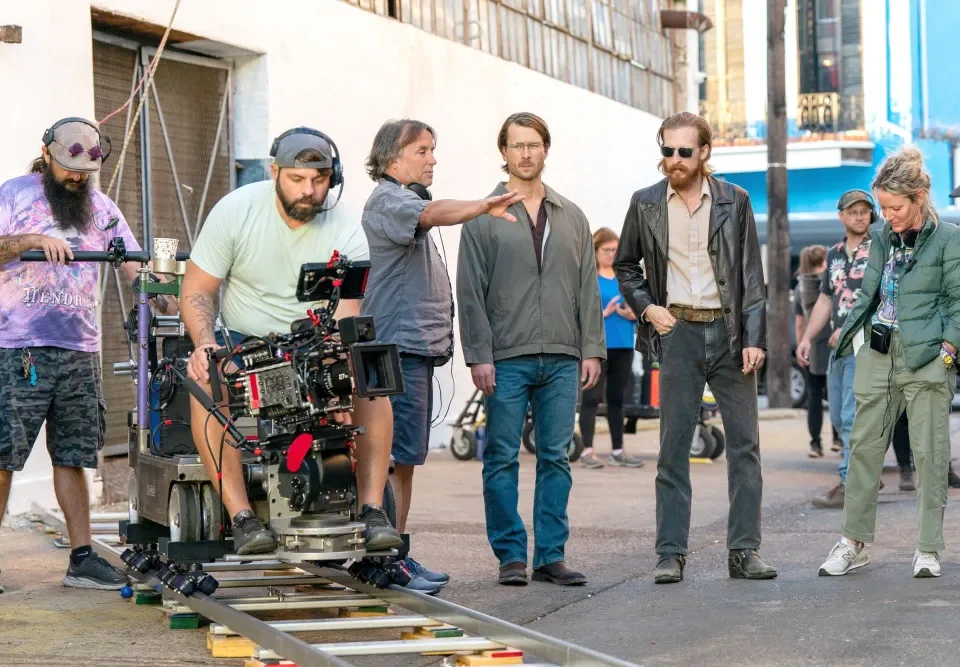
Breaking Down ‘The Crow’: Inside the Reboot’s Provocative Ending, Bone-Crushing Fights and Potential Sequels
08/24/2024
Anubhav Sinha Talks Taking Flight with Netflix’s ‘IC 814’ Hijack Drama (EXCLUSIVE)
08/26/2024By Alissa Simon
According To The variety Throughout her storied career as a screen and theater actress, Mirjana Karanović has never run away from a challenge. In the melodrama “Mother Mara,” her second feature as a director, co-writer and star, she gives herself challenges aplenty, including showing herself both physically and emotionally naked. Her Mara is a tough, successful businesswoman with platinum curls à la Marilyn Monroe, whose carefully constructed identity falls apart after the death of her 21-year-old son.
Even Mara’s grieving process defies custom. She refuses to stay away from work or cry on the shoulders of others. Instead, she re-ignites her lifeforce through an affair with a much younger man. Some viewers, who would find it perfectly acceptable if the genders of the two principal characters were swapped, may find the older woman/younger man dynamic implausible, but the performances of the two leads and a late twist in the plot do a pretty decent job of selling it. After a gala world premiere at the Sarajevo Film Festival, the film should segue to other regional festivals.
The film begins with the funeral of Mara’s son Nemanja (Pavle Cemerikić), who once shared her large, modern house, complete with its floor-to-ceiling glass wall looking out on a swimming pool and tasteful, expensive, neutral-toned furnishings. Mara raised Nemanja mostly on her own, as her husband left early on to start a new family. In spite of his heart condition, Nemanja is about to start a new life, attending the London School of Economics. Mara’s dry-eyed appearance at the wake draws concern and gossip, but she rather coldly brushes aside the attentions of her sister (Jasna Zalica) and hurries back to the office, a place she feels is still under her control. When the 28-year-old Milan (Vučić Perović), a hunky personal trainer, comes to her office with a property question, and tells her that he knew Nemanja, she is intrigued.
With the help of Milan and her son’s now-unlocked cell phone, she learns that Nemanja was keeping various secrets and not taking proper care of his health. In the meantime, haunted by nightmares and full of despair, she finds herself more and more drawn to the vibrant Milan.
While Karanović’s first feature, “A Good Wife” (2016), turned on recent history and a wife’s rebellion, the heroine of “Mother Mara” has long since rejected traditional gender roles. By initiating the affair with the younger man, she challenges stereotype and cliché.
The production design by Dragana Baćović and costumes by Laura Locher play a big role in defining the characters of Mara and Milan. She wears her tight, low-cut dresses, high heels and bright lipstick to work like armor. At home, she can let her guard down in softer pieces. Her running clothes in the film’s final shot indicate that she has moved beyond mourning and re-opened herself to the possibilities of life. Milan, meanwhile, gets shirts that open to his bare chest, showing off his lean physique, though he is more often shown completely shirtless.
The film’s co-producers include two directors who won awards with Karanović as the star of their first features: Bosnian Jasmila Zbanić with “Grbavica” and Croatian-Swiss Andrea Staka with “Fraulein.”




